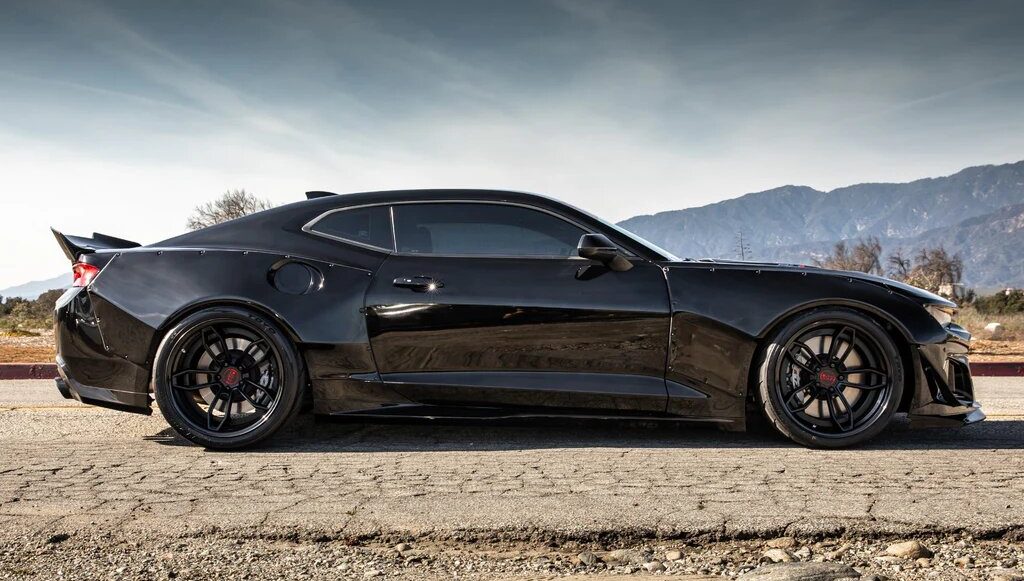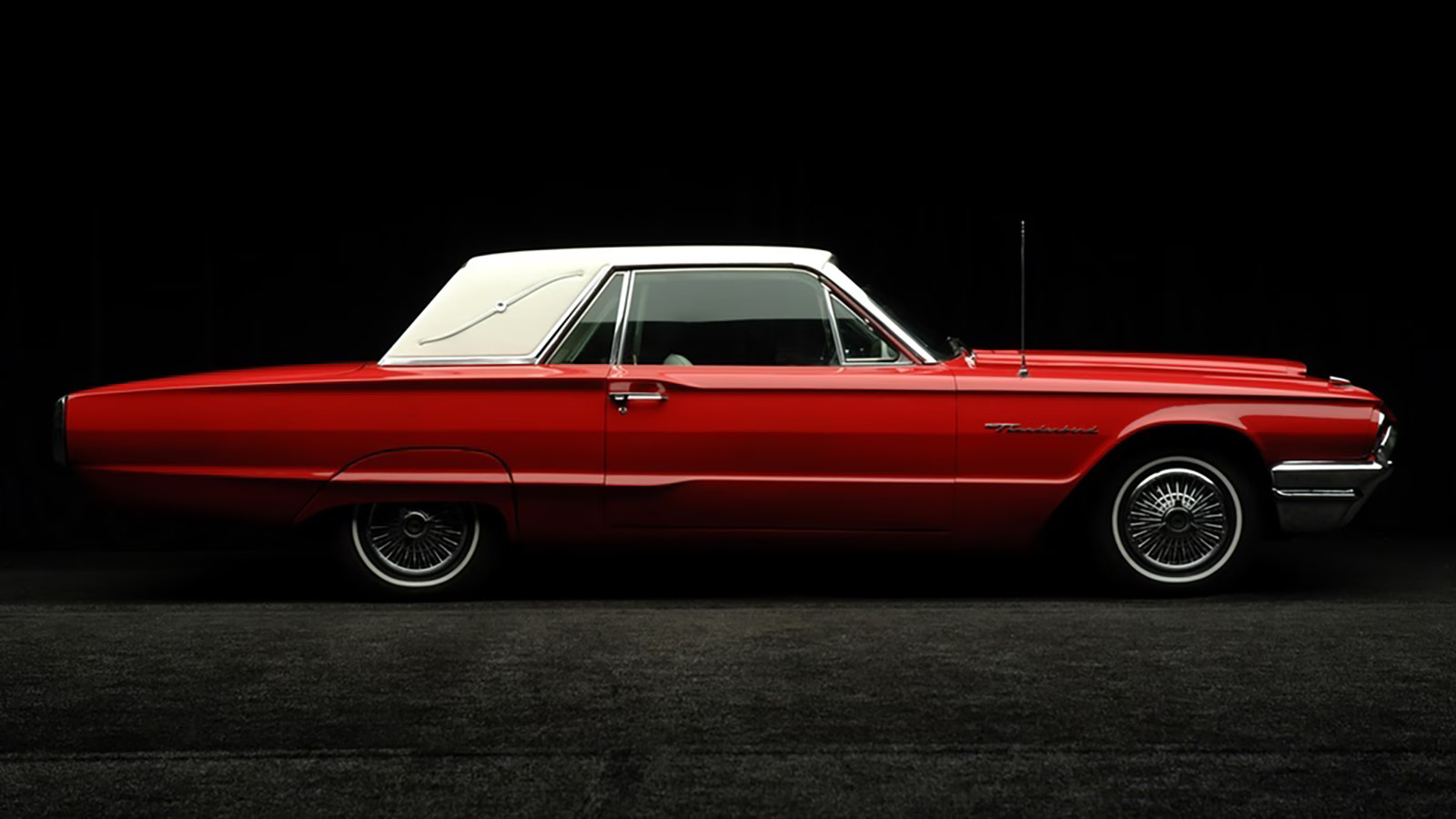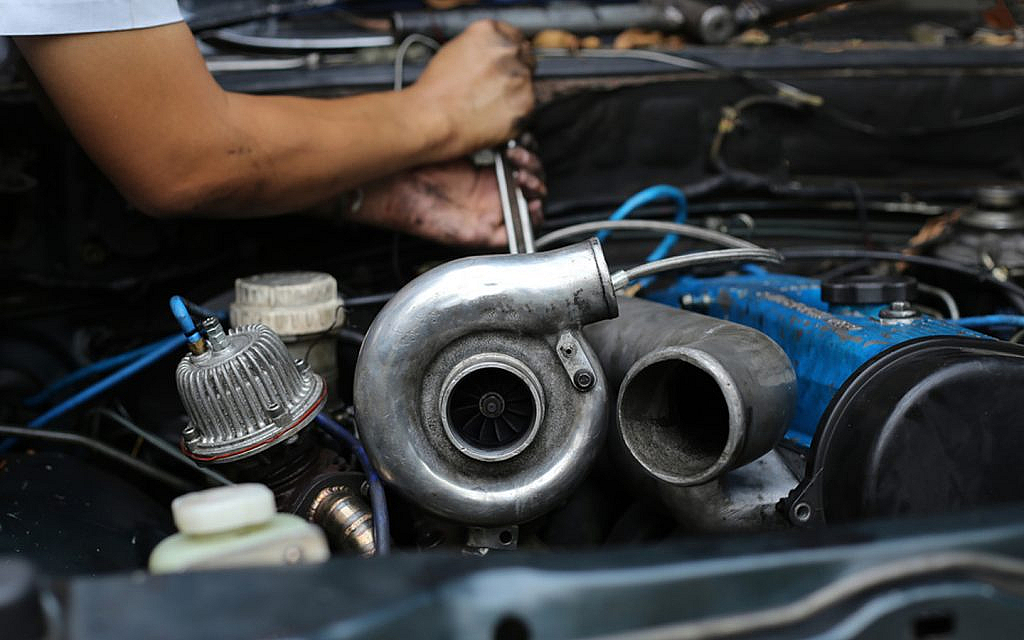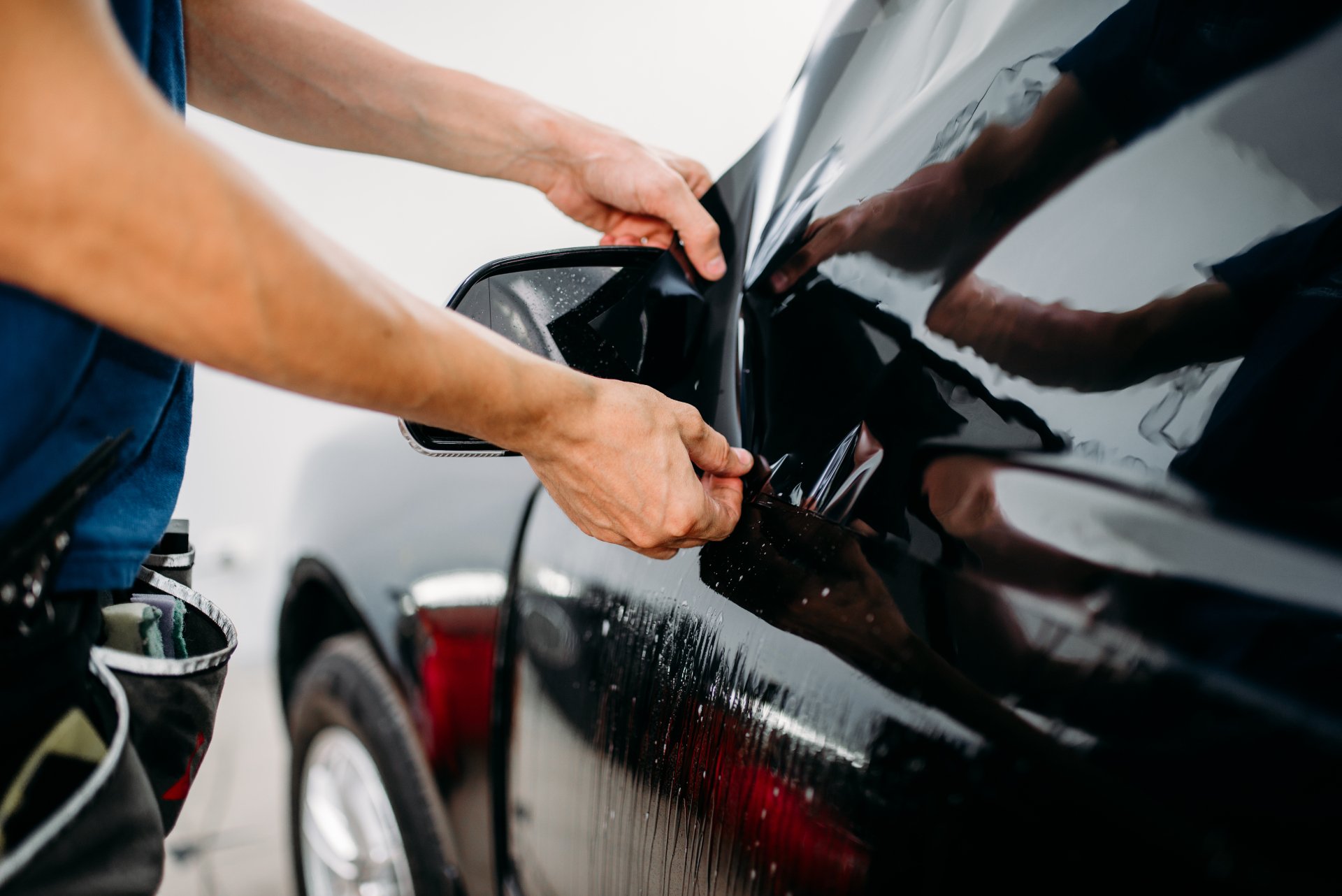If you are a car enthusiast, it is understandable that one day you’ll look at your vehicle’s factory appearance and decide that it is too boring and lacks personality. The first solution you’ll come up with is a Body Kit modification. This enhancement covers the need to add some style and character to the car, as well as introduces new functionality and performance upgrades. Custom body kits provide a vehicle owner with a wide range of enhancements and stylistic choices: they are manufactured using different materials followed by an almost infinite range of paint finishes.
Even Slight Changes are Possible With a Body Kit
Sometimes you don’t want to rush with the upgrades. You want to study body kits, how they work, what they offer, and what materials are used by different manufacturers. You may start with just lips kits or single add-ons, which will help you feel different materials and plan on the style you want to add to the car. The rear spoiler or front air dam are good choices to add character and even racing aggression.
But if you want to go all in, full-body kits are available that will significantly change the way your vehicle looks and feels on the road. Wide body kits will make your vehicle look bigger and more aggressive, while bumper kits put attention on the aftermarket bumpers that create a character.
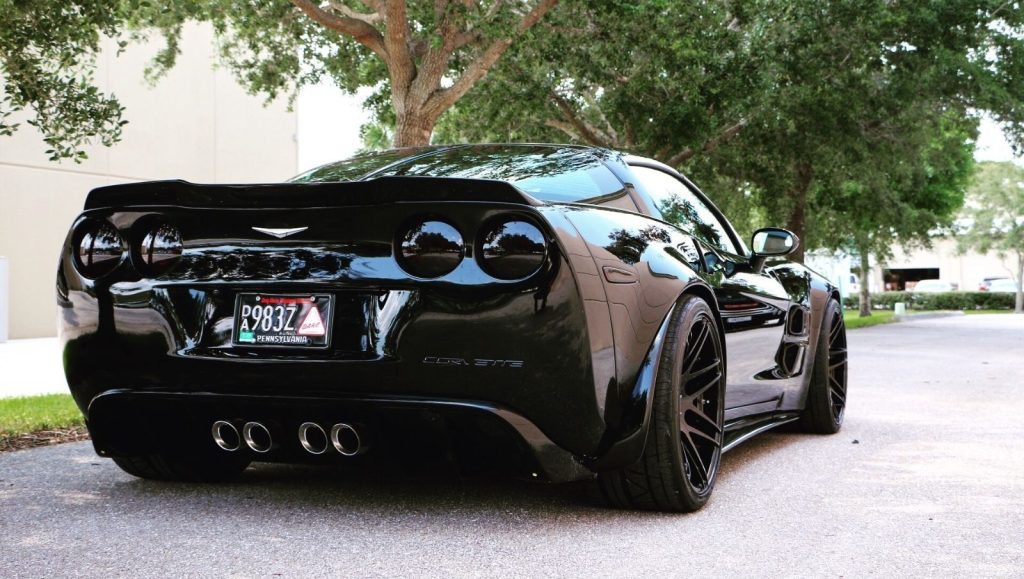
But What About Body Kit Materials?
If you already decided what body kit you want to install on your vehicle, the next question would be about the material you wish the modification to be. Today five body kit material types exist that provide different advantages and disadvantages: ABS plastic, composite, carbon fiber, polyurethane, and fiberglass.
Some manufacturers specialize in one of those materials, bringing it to perfection, while others offer different types of body kit materials. You as a driver should only understand the material’s characteristics to make the right decision about what you want to install on your car. In this article, we are going to help you exactly with that problem.
ABS Plastic: impact-resistant body kits
ABS is a strong polymer of thermoplastic that provides a combination of such features as strength, rigidity, and ruggedness. This material is known for its heat and chemical resistance.
ABS plastic is widely used in body kits thanks to the durability it provides on the road, which means fewer dents and other externally-induced damages. Many companies that manufacture aftermarket car parts use this material for bumpers, trims, and body panels.
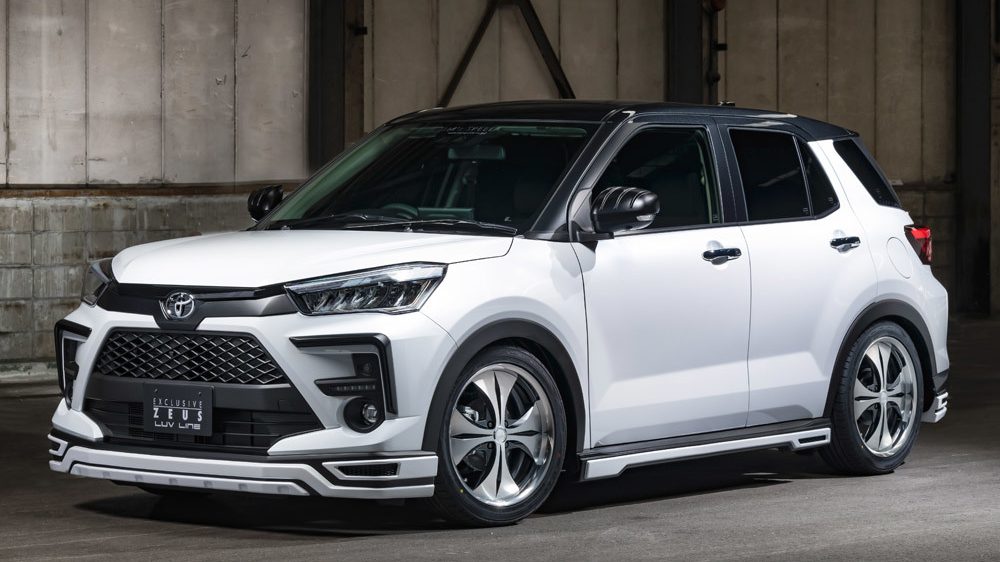
- ABS plastic costs more than fiberglass, but its quality is comparable to polyurethane.
- On the contrary to fiberglass material, ABS plastic offers good conditions to apply various paint finishes and fits.
- ABS plastic body kits are not as flexible as fiberglass, but they provide better resistance to physical and chemical damage.
Composite Body Kits: a combination of qualities
As you can understand from the name, composite body kits are manufactured using a combination of different materials. It is done to combine different qualities and create a product with features that cannot be possible if a specific material is used alone.
The most popular materials used in composite body kits are plastic, fiberglass, and resins. Together they create lightweight but at the same time durable products.

- Composite body kits provide much more durability and flexibility than fiberglass products.
- Composite materials are lightweight, which means less load on the car even with the full body kit.
Carbon Fiber Body Kits: recognizable style and quality
Carbon Fiber is actually a polymer-like epoxy reinforced or “woven” with the carbon fiber material. Carbon Fibers, for its part, are created when carbon items are connected together to form crystals bonded with the long axis of the fiber material. This technology provides high-end strength to the product, despite its seemingly unimpressive weight and size.
Carbon fiber body kits are extremely popular among the racers that seek style, durability, and minimum weight of their modifications.
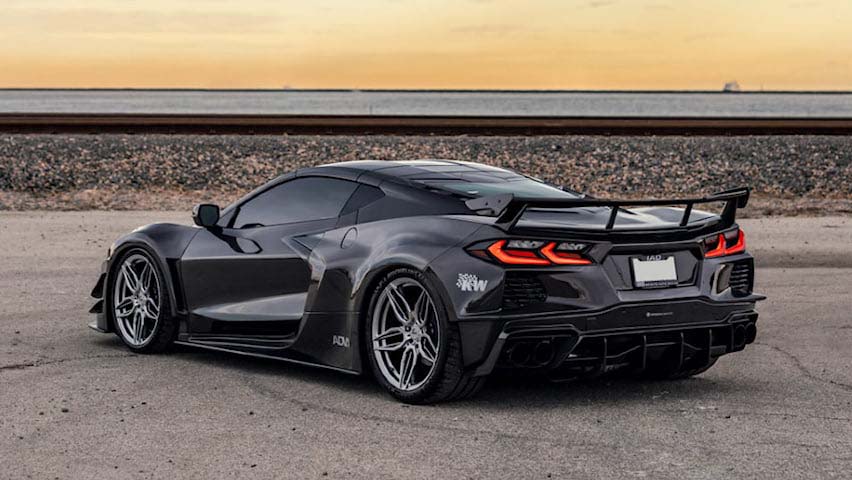
- Generally, carbon fiber body kits are expensive due to their material features and unique style.
- Extremely lightweight material will decrease the load on your vehicle to the maximum.
- Carbon Fiber Body Kits do not require paint finish unless some vehicle owner has a real thing for experimentation.
Polyurethane Body Kits: flexible and beautifully finished
This material is one of the most popular when it comes to manufacturing vehicle body kits. The reason for it is its incredible fitting advantages during the installation process. Polyurethane body kits are much more flexible than the ones created with fiberglass, which means more durability to physical damage. This flexibility provides convenience during installation, you can bend and push it into position without the fear of it cracking and breaking.
The polyurethane flexibility also provides durability to minor and medium physical damage that can occur on the road. While fiberglass can break even from minor impacts, polyurethane will bend in response to it, which will reduce the risk of total breakage.
The main disadvantage of this material is its vulnerability to deformation under excessive heat. Take this into consideration if you live in hot areas.
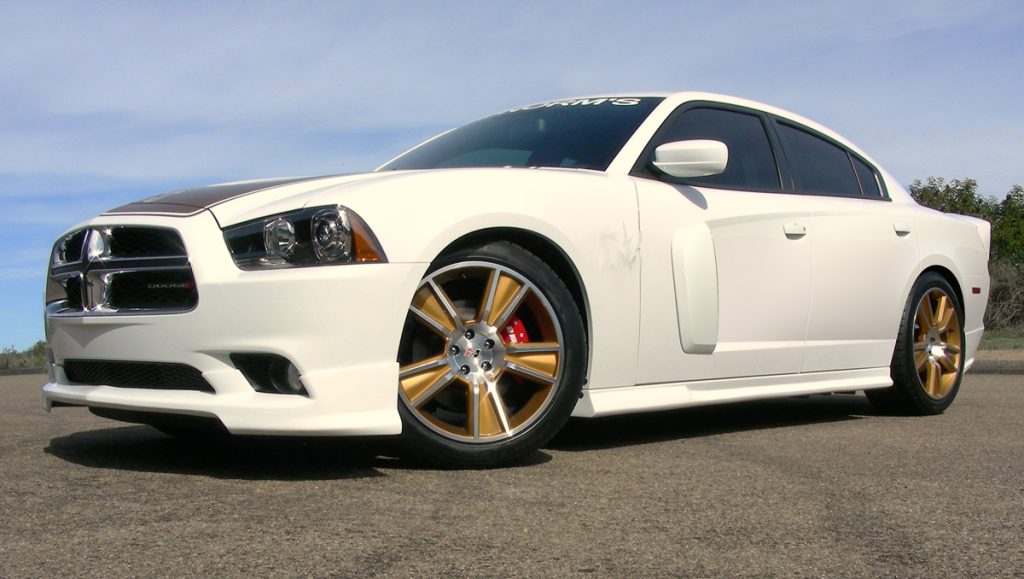
- Polyurethane is more difficult to manufacture than fiberglass products, which means higher costs for the customer.
- Polyurethane is heavier than fiberglass, not the best choice if racing is your vehicle’s primary function.
- Polyurethane body kits make paint finishes look much smoother, but it takes more experience to paint them correctly.
- Polyurethane is not plastic. While plastic is very fragile, polyurethane body kits offer elasticity and durability at the same time.
Fiberglass Body Kits: cheap material with its pros and cons
Since fiberglass body kits do not require much effort to manufacture, the final cost is cheap for the customer. But, of course, the affordable price comes with its disadvantages. The main problem with fiberglass body kits is their rigidity and vulnerability to physical damage. It makes the installation process much harder.
But what’s worse, fiberglass products remain vulnerable on the road. While ABS plastic or carbon fiber is durable enough to withstand minor and medium impacts, fiberglass has a high risk of breakage even from minor bumps. Fiberglass rigidity disadvantage can reach such an extent that you may break it even on the parking lot barriers and angled driveways.
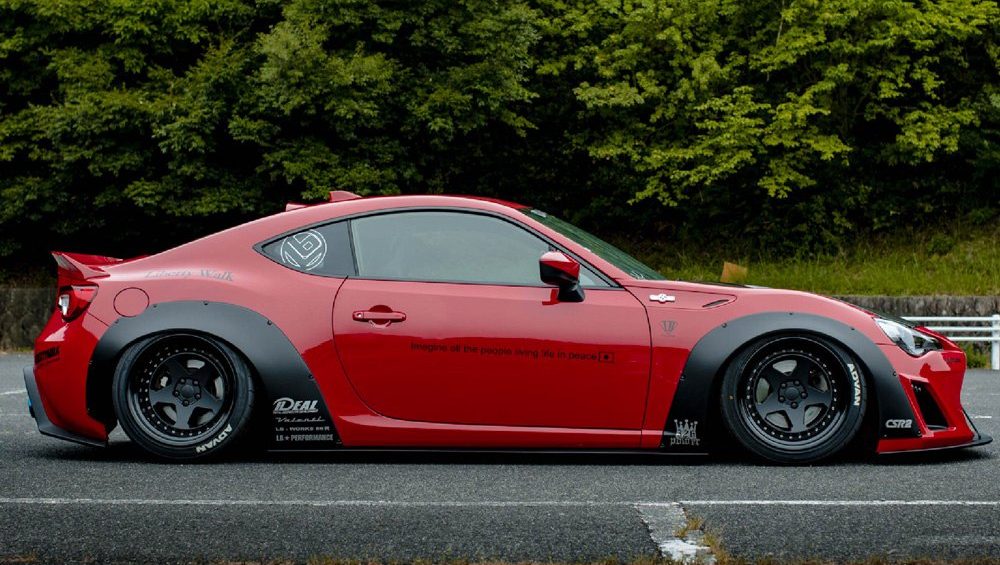
- Fiberglass body kits are extremely affordable, which may be a good decision if you own a cheap vehicle that you’d like to customize a bit.
- Fiberglass is a lightweight material. Although not very reliable for racing due to vulnerability to physical damage, this material is still a good start to add style and reduce the load.
- Fiberglass is immune to temperature changes, it will not deform under the influence of high temperatures. A good thing to consider if you live in extremely hot areas.
What to Remember When Purchasing a Car Body Kit?
The most important thing to confirm when purchasing a body kit modification from any manufacturer is their reputation. The reputation has to be praised by customers not only in terms of the products they create but the experience they have in the installation process.
In other words, the company has to create high-quality products no matter what material they use, as well as they have to be professionals in installation. Because, when it comes to body kits, in the process of installation they may require adjustments, finessing the fit, and blending.

What Body Kit material would you recommend?
Although it depends on your driving habits, we can surely say that the best balance between price and advantages can be found in Polyurethane and ABS plastic. While carbon fiber has the highest price on the market, fiberglass on the other hand is the last material you should consider for your vehicle.
Are fiberglass body kits really that bad?
Well, fiberglass can be a perfect solution for some situations when it comes to body kits. For example, if the vehicle you own doesn’t cost that much and you only look for a stylistic enhancement. But generally, there are more disadvantages to the fiberglass material, and the main one: is vulnerability to physical damage. There is just no guarantee you won’t break your fiberglass body kit in the first month of using it unless you are an extremely careful driver that avoids any road bumps, potholes, and angles.
Polyurethane or ABS plastic: which body kit to choose?
Generally, engineers and vehicle owners recommend polyurethane as the best material when it comes to price and performance. While both of them have almost similar qualities, plus sides and disadvantages, polyurethane is a winner when it comes to durability and strength.
While both of these materials can shrink and expand with temperature changes, ABS plastic is known to have a higher resistance to heat.

Composite or Carbon Fiber Body Kits?
As of today, composite is not a common material among vehicle parts manufacturers, but it definitely has some advantages worth trying out. but only if you find a reliable and experienced manufacturer.
Speaking about Carbon Fiber body kits, they may be a good choice if you own a high-end vehicle that should be modified with the best materials of the highest quality. Of course, expect high prices but the corresponding style and quality.
Conclusion: choosing your Car’s Body Kits
In the end, only the vehicle owner can understand what would work best installed on their car. It is only important to do research, find the best manufacturer, and consult with the customer reviews.
